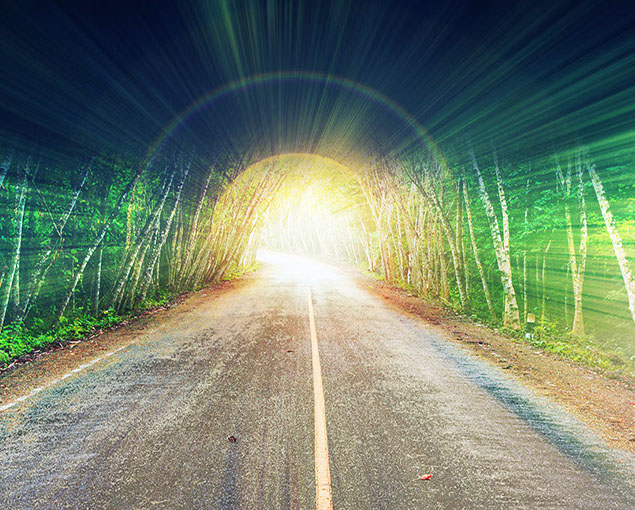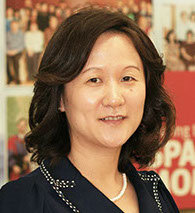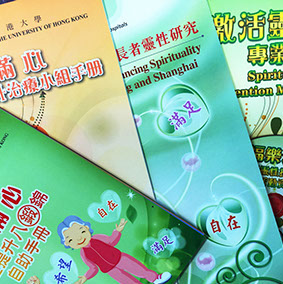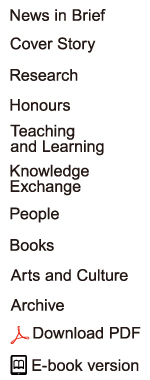
Spirituality is an important part of successful ageing, but it has a different meaning for Chinese elderly compared with their Western counterparts.
A MEANINGFUL END

The staff at a Tung Wah Group of Hospitals’ nursing home thought they were doing everything right for their residents when they launched a programme to enhance physical, psychosocial and spiritual care. But while they achieved good results on the first two goals, the spirituality measures did not improve. Seeking an answer, they turned to Dr Vivian Lou for help.
Dr Lou, of the Department of Social Work and Social Administration, studies culture-specific issues in care-giving, particularly psychological well-being. She saw the possibility here of a mismatch between the programme used by the nursing home, which was modelled on Western concepts of a higher being and afterlife, and the Chinese population that it served.
“In Chinese society, if you ask people if they have a religion, they will say they worship ancestors and do some rituals during holidays or festivals, but they don’t have very strong views on life after life,” she said. She therefore started to explore how Chinese perceived spirituality.
Focus group discussions with elderly participants were organised and analysed for their content and language. Distinct views emerged. “Older Chinese care less where they will go after they die or whether they will transform into another form of life. Rather, it is the harmony of their relationships that contributes to their concept of what we call transcendence.
“As you age, it is not the physical or material world that counts but transcendence. If you don’t have this, you will very be fearful of death and dying, and pain and loss of strength,” she said.
Life energy from relationships
Dr Lou formulated a model of Chinese spirituality that was tested in a survey of more than 800 adults in Hong Kong and Shanghai, and in interventions with Hong Kong elderly.
The latter involved protocols organised around concepts of the interdependent self and social orientation: opening up the mind, spiritual breath, self-reintegration, family support, friendship, forgiveness, and harmonious relationship with the environment. The interventions were administered to experimental and control groups, and resulted in the former reporting greater spiritual well-being, reduced anger, more hopeful feelings about the future, and an improved evaluation of meaning in life.
“Sometimes older people feel stuck. They may think, only my son can give me life energy, not anyone else. But they can also get energy from self-love and care, family, friends, other people around them and the environment – from these five types of relationships. We want them to expand their recognition and achievement of meaning in life,” she said.
Dr Lou has developed a self-help book based on the intervention and is now assessing a group using the book. She also plans to develop an application.
Professional intervention manual and self-help spirit booklets developed by Dr Vivian Lou based on spiritual process model for Chinese older adults.

Back
It is common for Chinese to worship ancestors but they don’t have strong views on life after life.


Death in Chinese philosophy
The two famous philosophical schools of ancient China hold contrasting views on death and bereavement, one rooted in practical rituals, the other in a more elusive identification with natural processes.
Dr Chris Fraser of the Department of Philosophy has pondered concepts of death in both Confucianism and Daoism.
Confucianism, represented by Xunzi, has an elaborate system of rituals to remove the fear of death and ground it in human activity.
“For Confucians, order is achieved through the cultural system of ritual propriety, which allows them to maintain an unbroken continuity in life. They don’t worship divinities or have conceptions of the afterlife, except perhaps Chinese folk conceptions. Even then, many Confucians do not believe in ghosts and spirits so they are not religious in that sense,” he said.
Confucians recognise the prominence of nature but argue it does not provide values or instructions on how to live, hence the need for ceremony and rituals, including those pertaining to death.
Daoists, on the other hand, as represented by Zhuangzi, preach an acceptance of death as part of the flow of nature. Most strikingly, they see death as a good thing.
“There’s a wonderful line in Zhuangzi,” said Dr Fraser, “that ‘what makes my life good is the very thing that makes my death good’. I think they will say all these good things in life issue from a relation with the grand flow of things, which is one way they think of Dao, or the Way. Fundamentally, the value in life comes out of my relation to that, so why not identify with it? If you do, then death is just another part of the flow.”
The concept was exemplified when Zhuangzi was discovered singing a happy song after his wife’s death. “He said that if he howled after her because he lost her, it would show utter incompetence with respect to the inevitable aspects of life. So he stopped mourning.
“We all agree that after grieving, you get to a point where you’re not emotionally upset any more, yet you continue to acknowledge this wonderful relationship you had with the lost person. The Zhuangzi writers seemed to think you could jump straight to that phase,” said Dr Fraser.

![]() In Chinese society, if you ask people if they have a religion, they will say they worship ancestors and do some rituals during holidays or festivals, but they don’t have very strong views on life after life.
In Chinese society, if you ask people if they have a religion, they will say they worship ancestors and do some rituals during holidays or festivals, but they don’t have very strong views on life after life. ![]()
Dr Vivian Lou

